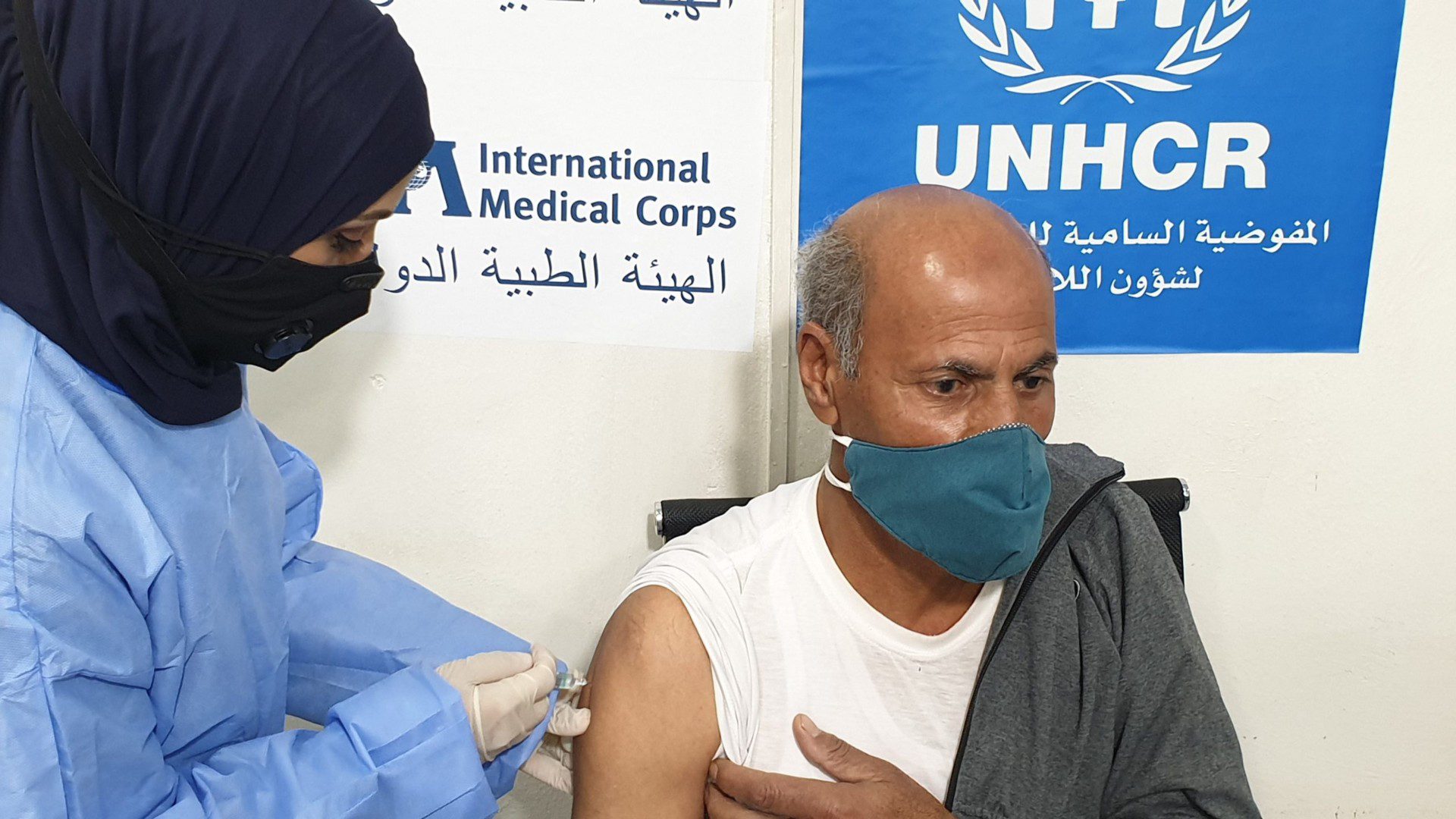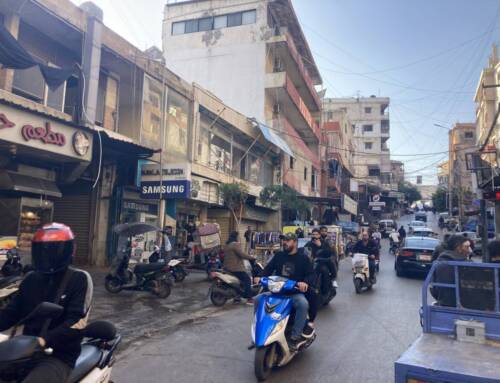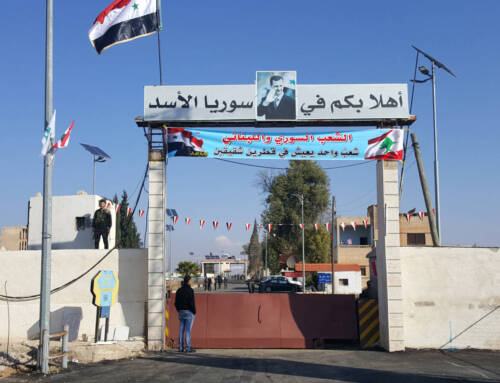Syrians included in Jordan’s plan to confront COVID-19: First vaccination center opens in Zaatari camp
Ninety-six Syrian refugees received the COVID-19 vaccine this week as the first group to benefit from the new vaccination center in Zaatari camp
18 February 2021
A Syrian citizen receives a COVID-19 vaccine at the vaccination center in Zaatari camp, 2/16/2021 (Syria Direct)
AMMAN — In northern Jordan’s Zaatari camp, 96 Syrian refugees received the novel coronavirus (COVID-19) vaccine this week as the first group to benefit from a new vaccination center opened in the camp under the supervision of the Jordanian Ministry of Health.
Syrian refugees in Jordanian provinces and in the camps had previously benefited from the country’s national campaign to vaccinate its residents. On January 14, 43 refugees received the COVID-19 vaccine in Zaatari camp, which contains 76,000 Syrian refugees out of a total 663,000 in Jordan registered with the United Nations High Commissioner for Refugees (UNHCR).
People stand in front of the COVID-19 vaccine center in Zaatari camp, 2/16/2021 (Syria Direct)
The number of Zaatari camp residents who registered on the Jordanian Ministry of Health’s online platform for those wishing to receive the vaccine has reached “around 2,000 people,” according to the UNHCR spokesperson in Jordan, Muhammad al-Hawari. “Of them, 1,200 meet the conditions for the first stage [of vaccinations] in terms of age group and chronic illnesses,” he told Syria Direct, “while 800 others fall into the second stage—they are in their forties.”
Two Jordanian Ministry of Health employees record refugees’ information at the Zaatari camp vaccine center, 2/16/2021 (Syria Direct)
Since the beginning of the pandemic, Zaatari camp has recorded “1,300 novel coronavirus cases, or just two percent of the camp’s residents, 56 of which are active today,” according to al-Hawari. He views this as “a clear indication of the extent of refugee cooperation with and observance of precautionary instructions.”
The Jordanian Ministry of Health prioritizes vaccinating the elderly and those with chronic illnesses, without discriminating between citizens and those residing in Jordanian territory from different nationalities.
Syrian women sit in the waiting room at the COVID-19 vaccination center in Zaatari camp, 2/16/2021 (Syria Direct)
In this context, al-Hawari stressed that “since the beginning of the coronavirus pandemic, the Jordanian government has included refugees in its response.” Like Jordanians, he pointed out, Syrian refugees have benefited from “free care, follow-up and test access.” Additionally, as part of the exceptions — such as health sector workers — defined by the Jordanian Ministry of Health to receive the vaccine, “refugees volunteering in the health sector with UNHCR have benefited,” according to al-Hawari.
A Jordanian Ministry of Health employee shows a vaccine which is being given to Syrians in Zaatari camp, 2/16/2021 (Syria Direct)
The opening of the vaccination center in Zaatari, as opposed to other camps in Jordan, came after large numbers of people in the camp registered to receive the vaccine. The center “will open and close from time to time, based on the appointments of those eligible for vaccination,” said al-Hawari. This does not mean Syrian refugees living in other camps did not receive the vaccine, he said. “Eight refugees in Azraq camp received the vaccine in the city of Zarqa.”
While the UNHCR’s role is limited to “facilitating the operation of vaccinating refugees and coordinating with the Jordanian government,” according to al-Hawari, the biggest role in responding to COVID-19 and providing the vaccine “lies with the Jordanian health” services.
Volunteers with an aid organization help a Syrian woman as she arrives at the vaccination center in Zaatari camp. Refugees are transported to receive the vaccine by relief agencies in order to organize the vaccination process and prevent overcrowding, 2/16/21 (Syria Direct)
This report was originally published in Arabic and translated into English by Mateo Nelson.












